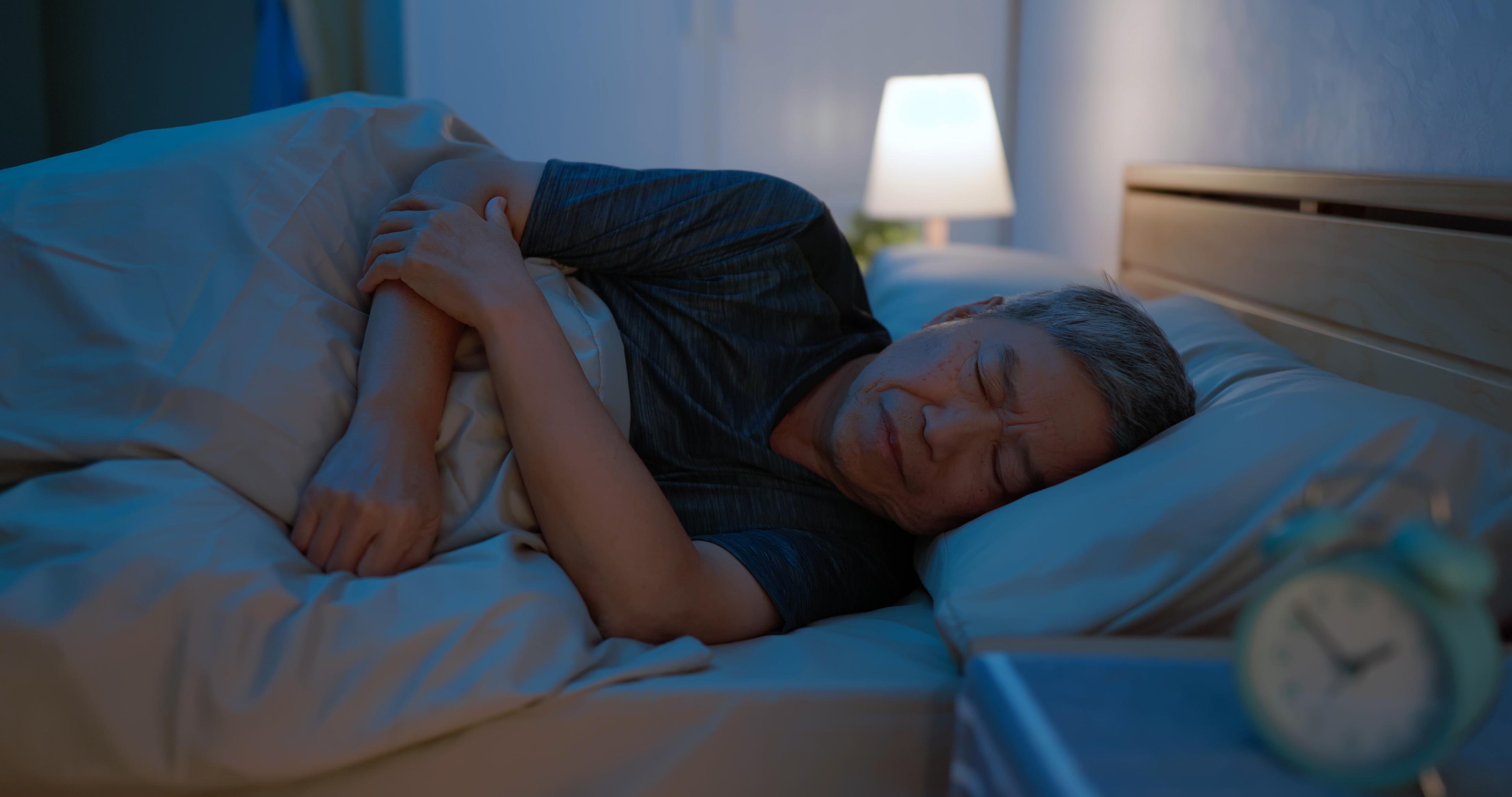Is There a Link Between Sleep Disorders and Alzheimer’s?

Lindsay Knake
| 3 min read
Lindsay Knake is a brand journalist for Blue Cross B...

Key Takeaways
- People who sleep fewer than six hours a night more likely to develop dementia compared to those who sleep at least seven hours a night.
- Sleep apnea also significantly raises the odds of Alzheimer’s disease and other forms of dementia.
- Getting at least seven hours of sleep and following sleep hygiene habits can help lower the risk of Alzheimer’s.
Sleep is key for physical and mental health, including repairing muscles and supporting your immune system. It’s also an important part of healthy aging.
Lack of sleep, conversely, is connected with worsened well-being and even an increased risk of cognitive problems as you age. Let’s look at sleep and the risk of dementia and Alzheimer's disease.
Sleep and dementia risk
Alzheimer’s disease is a type of dementia characterized by memory loss and changes in behavior that can interfere with daily life, according to the Alzheimer’s Association. This disease causes more than 60% of dementia cases; dementia is a term for progressive brain disorders that cause cognitive decline and memory loss, among other symptoms.
There are many possible causes of Alzheimer's disease, including family history, age and heart health. Sleep may also be related to increased risk of Alzheimer’s. Multiple studies have found an association between lack of sleep and dementia.
One study of 2,800 people found people who slept fewer than five hours a night were twice as likely to develop dementia than those who slept six to eight hours a night. The second study found sleeping six hours a night from age 50 to 70 was associated with a 30% increase in dementia risk compared to people who slept seven hours.
Another study that looked at nearly 8,000 people in Britain also found people in their 50s and 60s who get six or fewer hours of sleep each night are 30% more likely to be diagnosed with dementia compared to those get at least seven hours of sleep, according to the National Institute on Aging.
There is also a link between sleep apnea and dementia risk, according to a study in the Journal of Sleep Research. Sleep apnea significantly increased the risk for certain types of dementia, particularly Alzheimer’s disease, per the study.
The link between little sleep and dementia risk isn’t completely understood, according to Harvard Health.
One theory is related to a protein that is related to Alzheimer’s disease. This type of protein, called beta amyloid, clusters to form Alzheimer's plaques. Sleep is key in the brain’s ability to flush away accumulating beta amyloid and reduce the risk of developing Alzheimer's disease.
More research is needed to understand little sleep and Alzheimer’s.
How to reduce the risk of Alzheimer's disease
Getting at least seven hours of sleep can help reduce the risk of developing Alzheimer's and dementia, according to Harvard Health. Another study found getting good sleep reduced the risk of Alzheimer’s in people who had increased risk.
If you don’t sleep at least seven hours a night, increasing the amount of time you sleep can help improve your health at any age. Here are a few tips for practicing good sleep hygiene:
- Go to bed and wake up at the same time each night, even on weekends.
- Avoid screen time one to two hours before bed.
- Exercise during the day to regulate energy levels.
- Avoid alcohol and caffeine several hours before bed.
- Keep your bedroom dark, quiet and 60 to 67 degrees Fahrenheit.
- Seek medical treatment for sleep apnea if you have it.
Eating a nutritious diet, getting at least 150 minutes of exercise a week, annual physicals and getting recommended screenings can also help with your sleep and overall health.
If you struggle with sleep, sleep apnea or insomnia, talk to your primary care provider about ways to improve sleep.
Image: Getty Images
Related:





